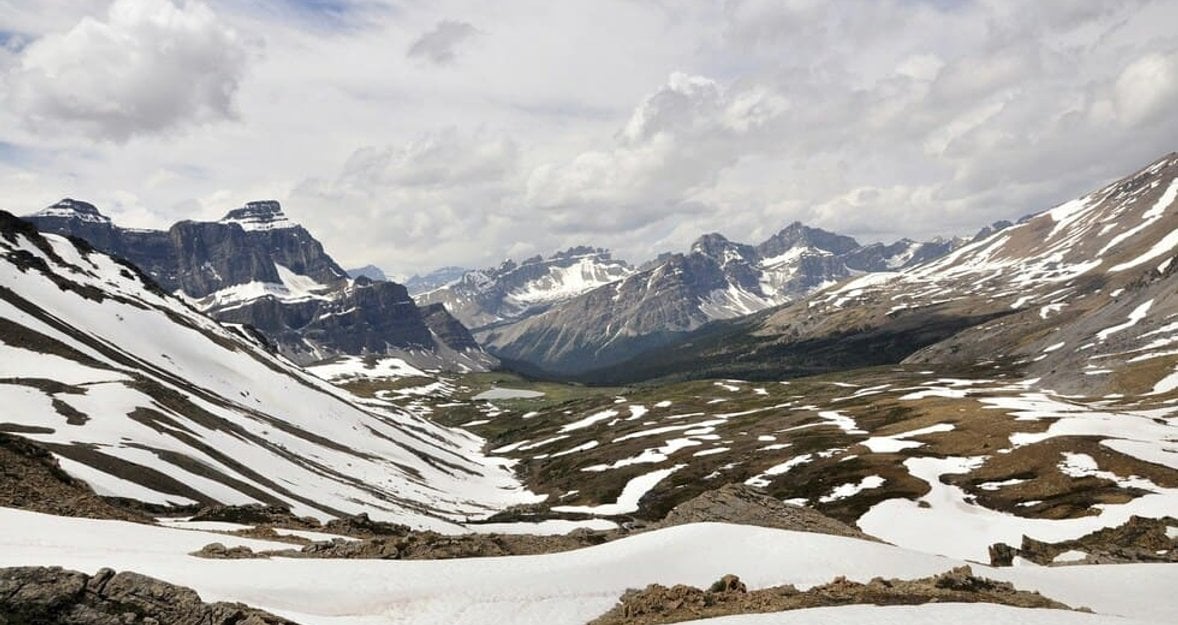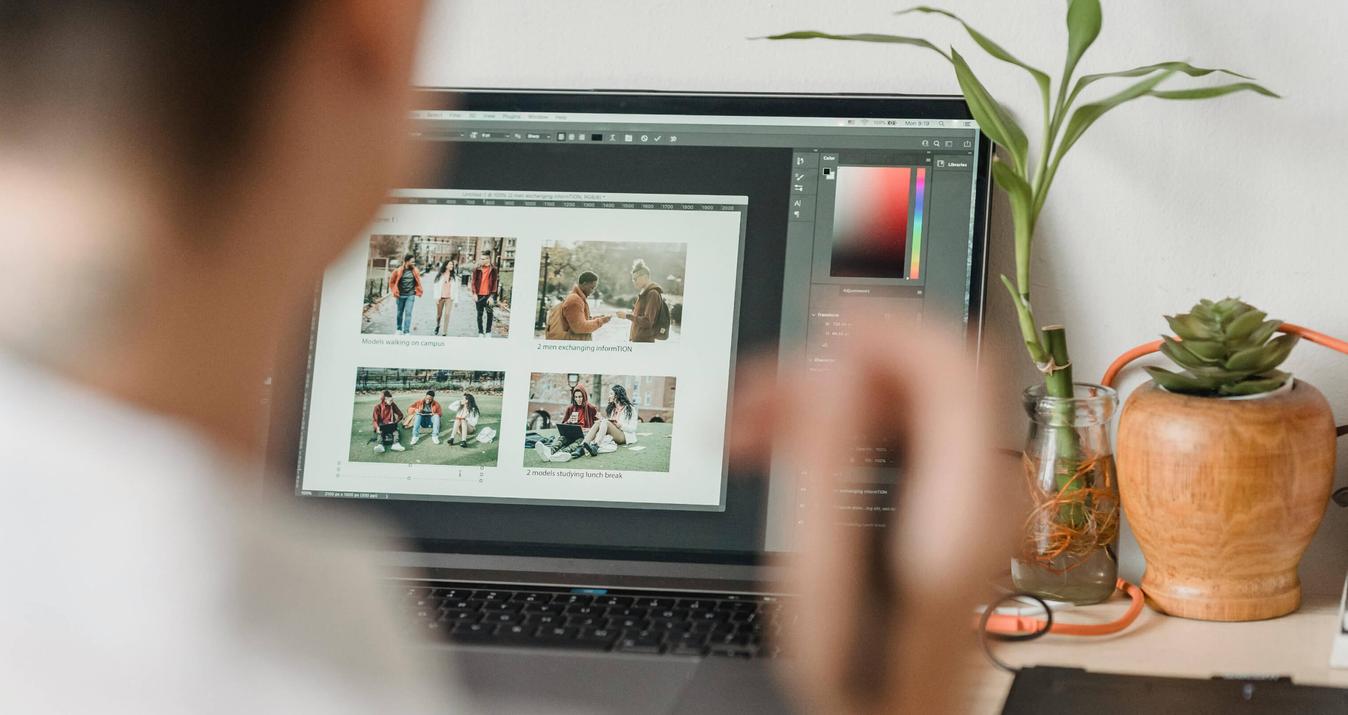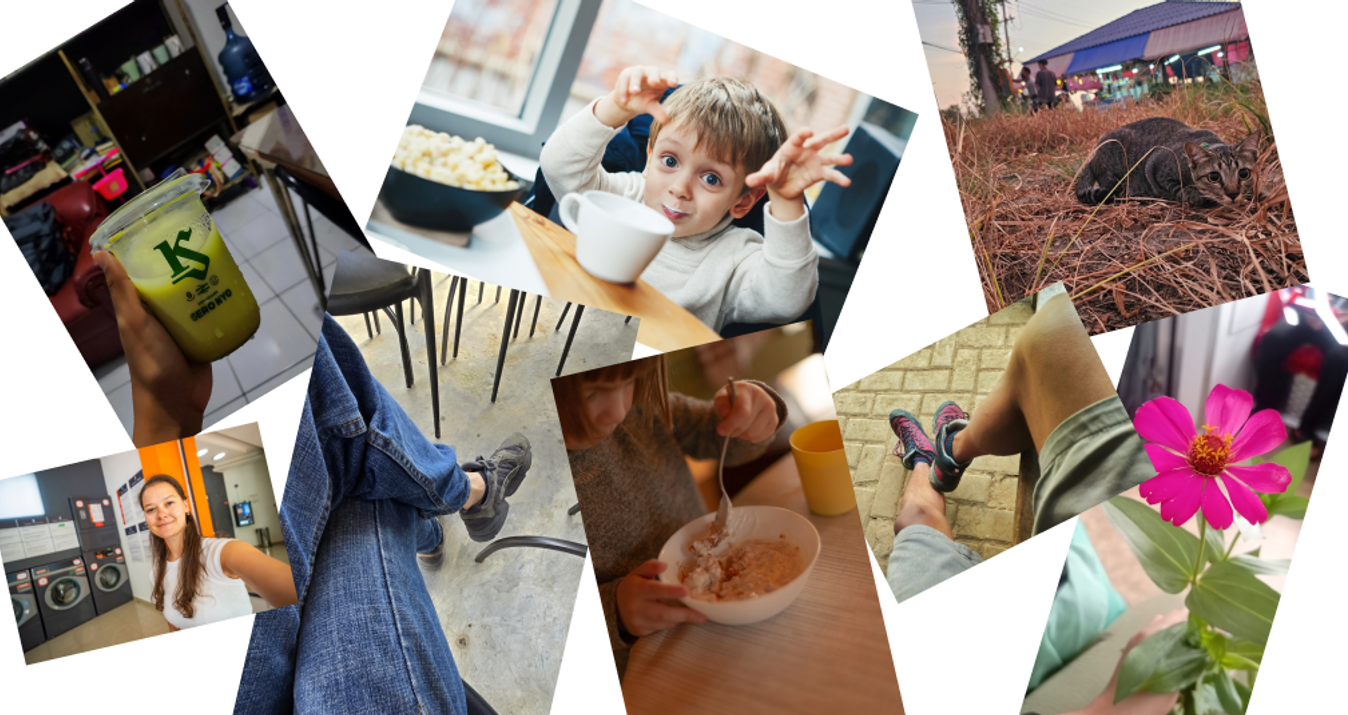Drone Photoshoot - Capture Breathtaking Aerial Views
July 01, 2024

This post will help you capture amazing aerial photos with your drone! Read on to discover practical tips and tricks for choosing the right drone and mastering photography techniques!
Looking to start taking photos with a drone? This post will help you pick out the right one, get it set up, and start snapping pictures from the air!
Let’s get started with creative drone photography!
Why Drone Photography is Special
 Drones let us take photos from up high without spending a fortune. This shift means that nearly anyone can snap pictures that look down on landscapes and cities, transforming everyday scenes into striking images. Previously, capturing such views meant hiring a plane or helicopter, a costly endeavor!
Drones let us take photos from up high without spending a fortune. This shift means that nearly anyone can snap pictures that look down on landscapes and cities, transforming everyday scenes into striking images. Previously, capturing such views meant hiring a plane or helicopter, a costly endeavor!
Another neat thing about drones is the top-down view they can provide. This perspective shows off patterns and details in the landscape that are hidden when viewed from the ground!
Sure, there’s a learning curve with flying a drone and you need to keep up with the rules, but the photos you can capture make it worthwhile!
Advanced yet easy-to-use photo editor
Get Luminar Neo NowThe Right Drone
 When you start looking for a drone, the variety can be overwhelming. We prepared some tips to find the right one for your needs!
When you start looking for a drone, the variety can be overwhelming. We prepared some tips to find the right one for your needs!
1. Consider the camera. Some drones come with built-in cameras, which might not have the highest resolution, but they're ready to use straight out of the box. Other drones allow you to attach your own camera, like a GoPro. This can be a good choice if you're already comfortable with your camera and just need to master flying the drone.
2. Think about your experience level. If you're new to this, you might want a model that's easy to handle and not too pricey. These drones usually don't have all the fancy features but are good enough to help you learn the basics.
3. Decide what you want your drone to do. Some are only suitable for indoor use, while others come equipped with lights for night flying or can travel longer distances.
4. Watch some reviews or tutorials before making a purchase. YouTube channels can give you a good idea of what to expect from different models.
5. Read the drone’s manual. It might not be exciting, but the manual contains crucial information that can help you get up and running without unnecessary hold-ups.
6. Look at features that might make flying easier, especially if you're a beginner. These include:
A smartphone feed that lets you see what the drone sees in real time.
A smart mode that simplifies controls and includes stabilization features for windy conditions.
A tracking feature that uses your smartphone's GPS to keep you in the shot.
A geofence that restricts how far and high your drone can fly to prevent you from losing control.
The Difference Between Photography and Filming with Drones
 Flying a drone just for fun can get boring quickly. While learning to fly is important, having a purpose makes it much more rewarding!
Flying a drone just for fun can get boring quickly. While learning to fly is important, having a purpose makes it much more rewarding!
If you're into flying for the thrill, an FPV (first-person view) drone is ideal. These drones are designed for the joy of flying. For photography or filming, the approach is different. Filming requires careful planning and precise control to get the perfect shot. A small mistake can ruin the footage!
Photography is easier by comparison. You can simply fly to the desired spot, adjust your position, and take the shot. This method also saves battery life, allowing for more shooting time!
Exclusive Tools of Endless Possibilities in One AI Editor
EXPLORE NOW!Tips for Drone Photography
 1. Know the Regulations: Before you fly, make sure you understand the laws about drone use in your area. For example, in the USA, drones weighing between 0.55 and 55 pounds need to be registered with the FAA. This process is straightforward and involves a small fee. Also, know where you can and can't fly your drone — avoid places like airports and crowded areas. Regulations vary, so always check local rules online before you take off!
1. Know the Regulations: Before you fly, make sure you understand the laws about drone use in your area. For example, in the USA, drones weighing between 0.55 and 55 pounds need to be registered with the FAA. This process is straightforward and involves a small fee. Also, know where you can and can't fly your drone — avoid places like airports and crowded areas. Regulations vary, so always check local rules online before you take off!
2. Create a Pre-Flight Checklist: Being prepared is key to a safe and successful flight. Before you fly, check the following:
Fly Zone: Ensure you're in a safe, legal area.
Weather: Confirm the weather is suitable for flying.
Surroundings: Make sure it's safe for people and property.
Battery: Fully charge your drone’s batteries.
Settings: Set your camera’s resolution and brightness.
Propellers and Motor: Inspect for damage and ensure everything works.
Controls: Make sure your remote or smartphone is ready and charged.
3. Test Drive Your Drone: Practice makes perfect. Before you start taking serious photos or videos, practice flying in a big, open area like a park. This helps you get comfortable with the controls and reduces the risk of crashing.
4. Fly with a Purpose: Plan your flights to avoid wasting battery life. For photography, decide on your shot, fly to the location, adjust your position, and take the photo. For filming, plan your shots and flight path carefully to get smooth, professional footage.
5. Choose the Right Altitude: Don’t just fly as high as possible. Instead, choose an altitude that makes your shot interesting.
6. Reach Unique Vantage Points: Use your drone to capture photos from places you can’t reach on foot. Whether it’s over water, above trees, or from dangerous locations, drones can help you get unique angles safely!
7. Shoot in RAW Format: For the best quality photos, shoot in RAW format. This gives you more data to work with when editing, resulting in better final images compared to JPEG files.
8. Plan Your Location: Use tools like Google Maps and Google Earth to scout and plan your shooting locations. This saves time and battery life, helping you find the best spots for aerial photos.
9. Consider the Time of Day: Lighting is important. Early morning or late afternoon provides softer, more atmospheric light, which is ideal. Use these times to capture long shadows and interesting patterns that aren’t visible during the harsh midday light.
Following these tips will help you capture stunning aerial images and make the most of your drone images!
Drone Shot Ideas
 Getting great photos takes more than just flying around. We gathered some practical ideas to help you capture amazing shots from the sky!
Getting great photos takes more than just flying around. We gathered some practical ideas to help you capture amazing shots from the sky!
Look for Patterns and Symmetry: From above, you can spot cool patterns and shapes that aren’t visible from the ground. Fields, roads, and rivers often create interesting visuals that make your photos stand out.
Keep It Simple: Don’t overcomplicate your shots. Focus on one subject and keep the composition clean. Simple photos often have the most impact.
Fly Smooth and Slow: This helps you get clear, sharp images and is especially useful for long-exposure shots, like capturing the movement of waves or traffic.
Use the Rule of Thirds: Most drones have a grid overlay option. Use this grid to position your subject off-center. This makes the photo more balanced and visually appealing. For landscapes, place the horizon along one of the horizontal lines.
Incorporate Leading Lines: Look for natural lines in the environment, like rivers, paths, or rows of trees. These lines guide the viewer’s eye through the photo and add depth.
Enjoy the process and discover new ways to see the world from above!
Challenges
 Drones have become more affordable, but you still need to spend a few hundred dollars for a good entry-level model from brands like DJI or GoPro. Often, it's more valuable to improve your flying skills and understand your drone than to buy the most expensive one!
Drones have become more affordable, but you still need to spend a few hundred dollars for a good entry-level model from brands like DJI or GoPro. Often, it's more valuable to improve your flying skills and understand your drone than to buy the most expensive one!
Image quality is another challenge. Even good consumer drones have smaller sensors and fewer megapixels than traditional DSLR cameras. This means you might not get the same image quality. If you want to make your photos look even sharper and more detailed, try the image upscaler 4K feature! This tool boosts your photo’s resolution up to four times while keeping the quality high.
Weather can also be a problem. High winds or misty conditions can ruin your photos, so always check the weather before you fly, and be careful!
Overall, drones offer great mobility and unique angles. To get the best results, take lots of photos!
Editing Your Drone Pictures
Post-processing your drone photos is crucial. Using an outdoor photo editor like Luminar Neo makes it simple and effective!
Editing lets you fix mistakes and enhance your photos. For instance, if your shot is a bit tilted, you can easily straighten a photo with Luminar Neo’s CropAI and Horizon Alignment tools. These features automatically correct alignment and level your landscape shots, making them look just right!
Also, when you have a lot of pictures to edit, batch editing can save you a ton of time. You can apply the same adjustments to multiple photos at once, ensuring a consistent look!
Conclusion
 Drone photoshoots let you capture beautiful views from above. With the right drone, some practice, and these aerial photography tips, you’ll be taking breathtaking images and exploring new perspectives in no time!
Drone photoshoots let you capture beautiful views from above. With the right drone, some practice, and these aerial photography tips, you’ll be taking breathtaking images and exploring new perspectives in no time!





